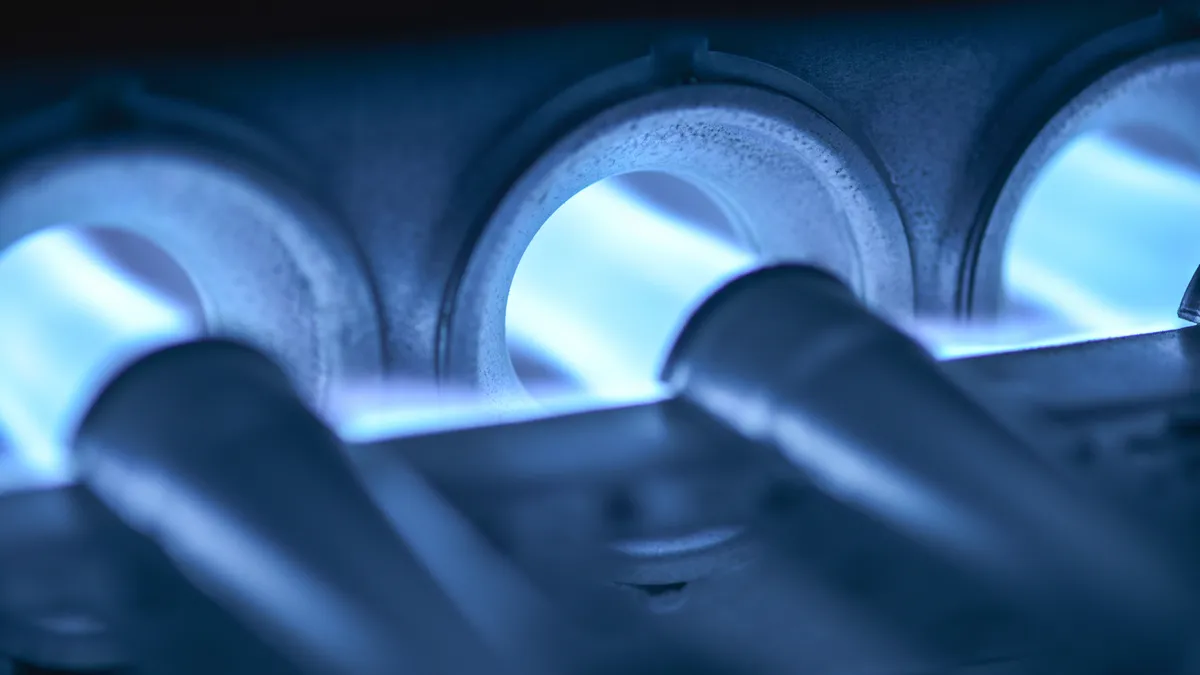Richard Eckman is an energy advocate at the Consumer Federation of America.
The last time our nation meaningfully updated energy efficiency standards for residential furnaces was 1987, because the natural gas industry has stymied attempted improvements to the standards for decades.
Back in 1987, President Ronald Reagan challenged Mikhail Gorbachev to tear down the Berlin Wall; Whitney Houston just wanted to dance with somebody; and, for $4,000, you could purchase Compaq Computer’s new “Portable III”, a 20-pound machine designed to be the smallest, lightest and fastest computer on the market. Americans have been unnecessarily paying higher energy costs due to these outdated standards for far too long. It’s high time to move into the 21st century.
The stakes are immense. Wasting less energy to heat our homes can protect millions of Americans, especially lower-income households, against surging fossil fuel costs that will burst budgets for many families over the coming months.
In early winter, household heating costs were forecasted to hit the highest level in at least ten years. According to the Energy Information Administration, the average household with gas heat will pay an extra $358 (62%) compared to the winter of 2020-2021. Families relying on oil, propane or electric heating appliances will also see significant increases, largely driven by higher fossil fuel prices.
These increased costs have enormous consequences for households already struggling to pay the bills, including those who must choose between foregoing food, medicine or heat. Even before the sharply higher heating expenses arrived, one-sixth of U.S. households were behind on their utility bills.
Improving the efficiency of furnaces is particularly important for protecting renters. About 35% of U.S. households are renters, and they are statistically more likely to be Black or Hispanic and have lower income than homeowners. One-third of renters have also fallen behind on their energy bills in the past year. Renters typically do not have control over the appliances installed in their homes, and property owners often opt for the cheapest options. As a result, renters in the U.S. are far more likely to live with inefficient appliances.
The simple fact is that Americans could reduce their energy burdens using furnaces that provide more heat for less money. Furthermore, improving appliance efficiency standards is widely popular. According to a recent survey, 76% of Americans support creating or strengthening federal energy efficiency standards for appliances. Yet, the federal minimum efficiency standards for these heating systems have not materially changed in over three decades, meaning wasteful appliances not only remain common in homes across the U.S. but are still being installed every day.
This past summer, the Department of Energy moved to increase the efficiency standards for residential furnaces, with a proposal that could save consumers at least $30.3 billion on their energy bills over 30 years of sales.
Yet even that eye-popping figure underestimates the true benefits. Improving energy efficiency is even more valuable because higher fossil fuel prices look like they are here to stay. After a decade of losing money, oil and gas producers and their financiers have pledged to stop chasing production growth. Even America’s oil and gas producers believe the era of cheap gas is over. At the same time, these companies are showering unprecedented profits on their shareholders.
Commonsense improvements in energy efficiency would protect all Americans, especially renters and low-income households, from the fossil fuel industry’s campaign to use the war in Ukraine as an excuse for more fossil fuel exploitation. Thus it is no surprise that the nation’s gas utilities have fended off previous attempts to improve appliance efficiency standards and again indicated they will “vigorously object.” Instead, we should of course be taking the opposite actions, to reduce our dependence on fossil fuels, which are a significant part of the tensions that lead to hostilities.
We need to stop fighting fossil fuel price gouging with one hand tied behind our backs. In the face of durably higher gas, oil and propane prices, the time to improve the performance of household heating systems is long overdue. Final action can’t come soon enough.
We call on the Biden administration to protect consumers by finalizing these critical money-saving standards as soon as possible.













